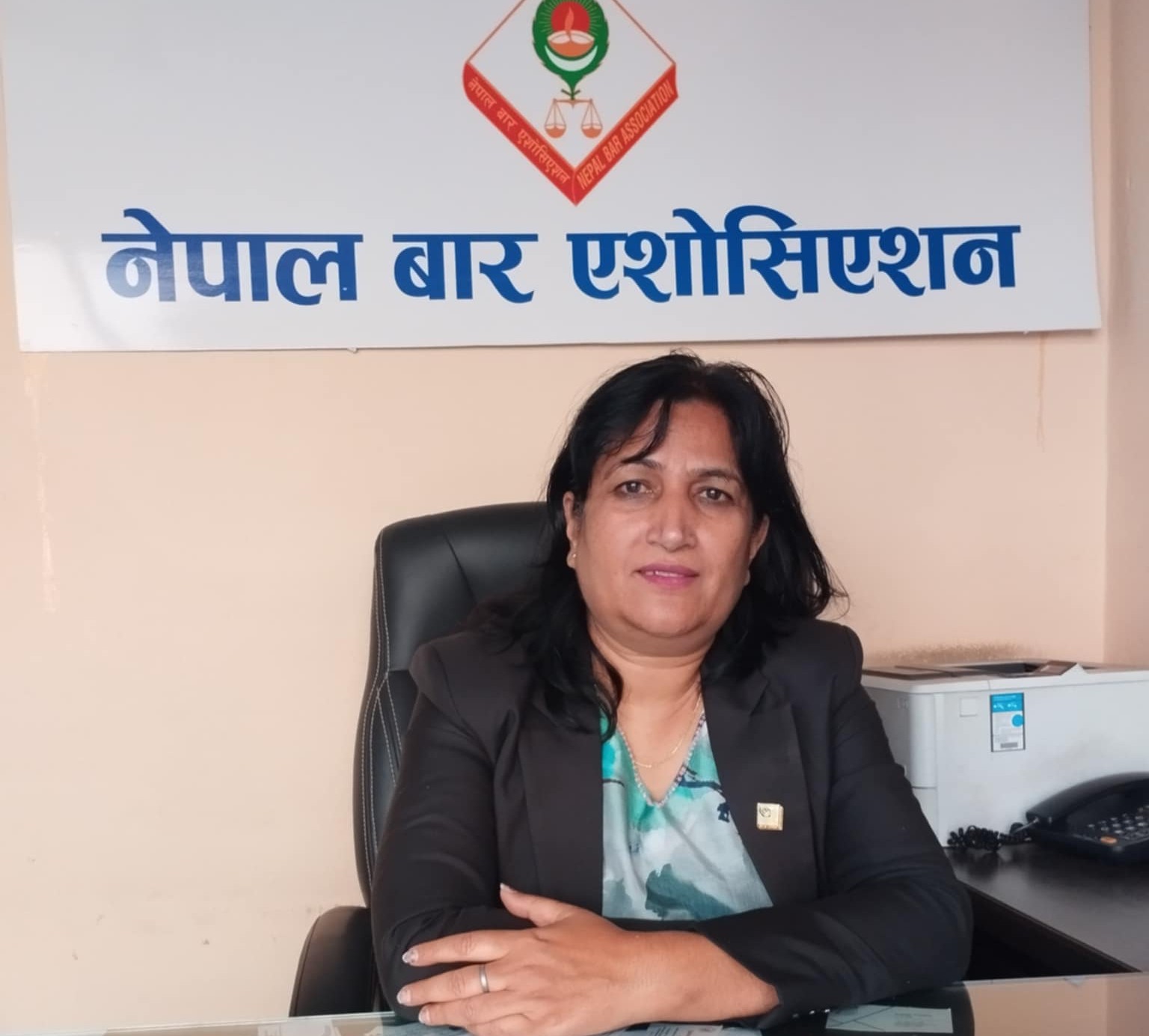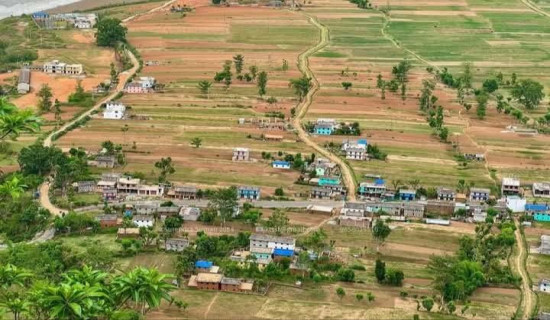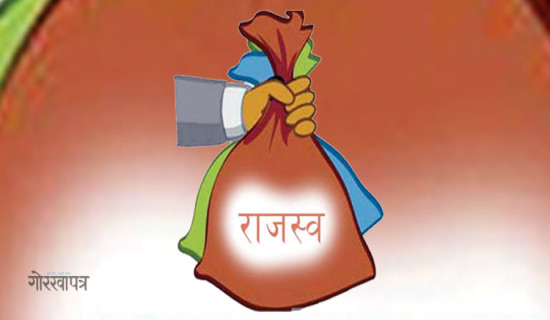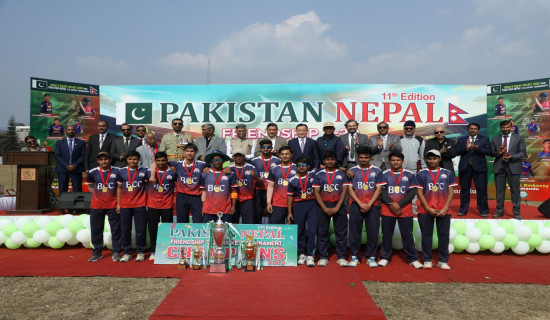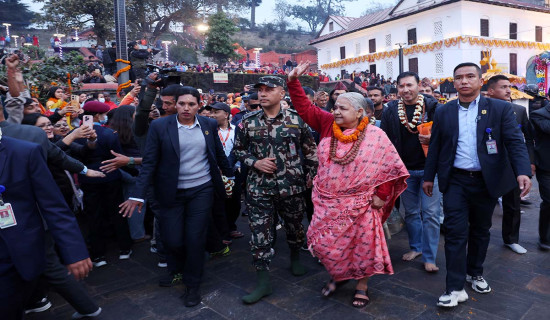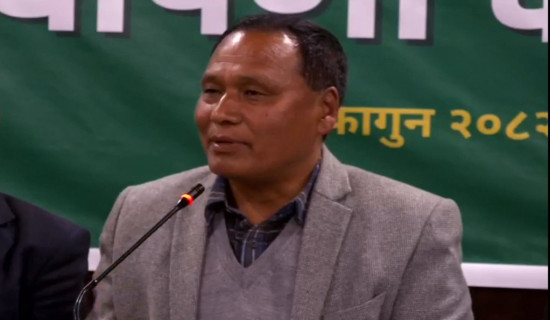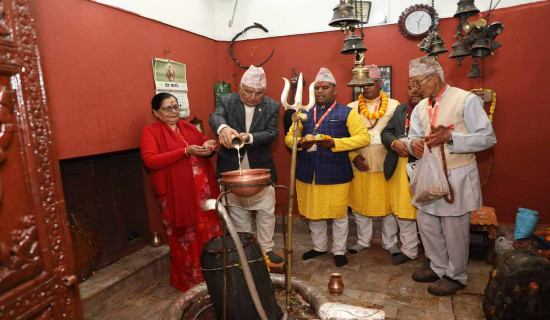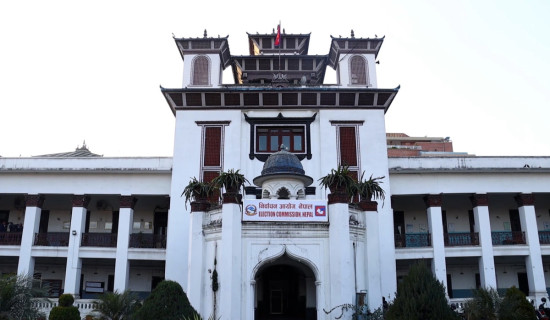- Monday, 16 February 2026
We worked to curb corruption in judicial sector: NBA General Secretary Khanal
Nepal Bar Association (NBA) is an umbrella organisation of the law professionals in the country. It is holding election for the 27th central executive committee on April 5 when 9,997 lawyers will vote from 36 polling centers. At this backdrop, Nanda Lal Tiwari, coordinator of the risingnepaldaily.com (online edition of The Rising Nepal), talked with NBA general secretary Anjita Khanal to assess the performance of the present NBA central committee with regard to reform of the judicial sector.
Excerpts:
How has been your tenure as the general secretary of the Nepal Bar Association?
Nepal Bar Association is a volunteer organisation and the executive committee that gets elected every three years works to implement its election commitment and objectives of the NBA. We also did the same. We worked to implement our commitments and continued regular activities to meet NBA objectives.
We focused on issues related to independent judiciary, its fairness, and tried to make judiciary free from anomalies and irregularities. The role of the Bar is vital as it is considered to be a watchdog in this regard. Bar is an integral part of judiciary while also an opposition to the government. Despite being an integral part of judiciary, Bar raises issues of anomalies and irregularities in judiciary, and we did the same. We upheld the responsibility handed over to us by the 25th executive committee of the NBA which were related to freeing judiciary from anomalies and irregularities.
There are some as usual or regular activities which the Bar does, for instance, activities related to Bar units, participation in national and international programmes related to judicial sector. We participated and carried out programmes related to Law Asia and International Bar Association. Our committee hosted a number of international events related to the Bar and judicial sector, for instance, International Human Rights conference inviting law professionals from 26 countries.
Judicial council amended regulation on 18 September 2023 which opened door for promoting first class judicial service employees to justices, and we opposed it arguing it is against the constitution. Our protest is still going on since then. Holding a national conference we endorsed the proposal for restructuring of judiciary by constitution amendment. Chairman of Law Asia, general secretary of International Bar Association and chairman of Indian Bar Association also participated in this conference as the guests. We identified eight spots related to judiciary for amendment in constitution. It was like amendment of constitution for restructuring of the judiciary. Of the eight, reform of judicial council was one while the constitutional bench and council as the two others. Judicial council became always controversial in relation to appointment of justices. The controversy erupts due to political reasons. This council is headed by chief justice, with law minister, law professional appointed by Prime Minister and NBA as members. Thus the council became more political due to its members. However, the role of the council chairman is vital. But, when the issue related to this particular council is raised in court, it becomes related with the chief justice. Now, the question of conflict of interest arises because the chief justice is involved in the case under discussion in court. So, we sought restructuring of the judicial council. Similarly, chief justice is also a member of the constitutional council where Prime Minister is the chairman, Speaker, leader of the opposition party and Chairman of the National Assembly as the members. Even here, controversy erupted that the chief justice also sought his/her share in the appointments in constitutional commissions. Then we sought removal of chief justice from such councils and carried out movement, which is still going on.
We identified eight spots related to judicial sector for amendment in constitution, including judicial council and constitutional council. We advocated for judicial reform, amendment in constitution for restructuring. NBA Chair was sued in court for raising issues of reform, corruption.
With regard to parliamentary hearing of the justices in the supreme court, we opposed it although we agreed to that of chief justice. We did so because we found almost all verdicts in favour of the government and we concluded that it was because of the parliamentary hearing which provided chances for parties to influence justices or aspiring justices. We also determined that tenure of the justice should be 7 years through annual general meeting. However, later on we thought it could be 10 years at maximum or maximum age bar but not the one as it is today. I hope the upcoming central committee will uphold our spirit and continue works to get implemented the decisions we made including amendment of constitution for restructuring of judiciary.
Any other things that you wanted to achieve but could not?
Judicial council regulation is against the constitution. We wanted its cancellation. But we could not despite protest. The protest is ongoing although in a symbolic manner now. This is what we wanted to do but could not achieve. We could not get cooperation from judicial council because we wanted reform for fair judicial sector. We opposed appointment of justices as per the new regulations. And appointment is stalled now although many judges at the high court are waiting for appointment. Chairman of the NBA got even sued in court for speaking in related to this issue. The funny thing is that the court administration sued him. Positions of six justices were vacant in supreme court, but only two justices were appointed by the chief justice just a couple of days before his retirement, and the NBA chair raised question on this, particularly over breaching of seniority. Now, the case is still pending.
How are you feeling that NBA election is being held in a few days?
There is a little of politics in Bar. Panels have been presented for the election. Mainly there are two panels in tough competition, one is formed by those presently close to ruling parties and the other of the professional lawyers. Nepal Bar Association is an organisaation recognised by the constitution as its representative is included in the judicial council.
Bar is expected to perform the role of opposition to the government. When we were elected, we were opposition to the government which had dissolved the parliament and we were for reinstating the parliament whereas there was another panel which had stood for parliament dissolution. In that sense, we were opposition. It was a kind of politics even then. But, once we got elected we kept raising issues for the progress of judicial sector. And I hope the new committee will complete the task we initiated.
Nepal Bar always struggles against corruption in judiciary. We did it, and I hope the new committee after election will also follow the trend in addition to focusing on protection of law professionals.
You said that the 25th central committee raised issues of irregularities in judiciary and worked to curb them. What were they and how successful was that committee?
We have to go back to the time when a joint committee of the supreme court and NBA made a report about corruption in court. Among many, the report raised an issue about the role of the chief justice in case distribution for hearing to the benches. The chief justice would allocate cases as per his wishes ! But, the movement we initiated succeeded and a system of lottery was introduced for case allocation, reducing the role of chief justice. The report prepared by justice Hari Krishna Karki and present chief justice Prakash Man Singh Raut concluded that all justices are middlemen, even after retirement. The report showed some 27 types of middlemen. Now, automation is being installed for lottery system in case allotment.
The full court of the supreme court has not owned the report of the Karki committee. Many of the recommendation made by the report have been implemented, but it is yet to be endorsed by the court. We demanded that the court should own the report. We suspect that there is something wrong as long as the court does not own the report and goes for its full implementation.
Nepal Bar always struggles against corruption in judiciary. We did it, and I hope the new committee after election will also follow the trend.
It is said delayed justice is no justice. There are cases in supreme court pending for over a decade. As a law professional, how do you see it?
Yes, there are. To solve this problem, we raised voices that all cases running for over 5 years should be prioritised, and then a case management committee was formed.
Because of lengthy processing, some cases are as old as 20 years!
The other reason for the delay in case finalisation is the system in which every case gets final verdict from the supreme court. This has increased the pile of cases in supreme court. We need to make a system wherein not all cases should be brought to the supreme court. So we proposed to make high court as an archive court so that most cases are concluded in it.
We have also envisioned of a local court by converting the presently functional judicial committee in the local levels. For these two issues, the constitution needs to be amended, and we have included these in the eight spots that we identified for amendment in constitution.

